Crackdown: Hundreds of Student Visas Cancelled
One attorney estimates that the Trump administration has revoked as many as 1,000 student visas at universities across the country.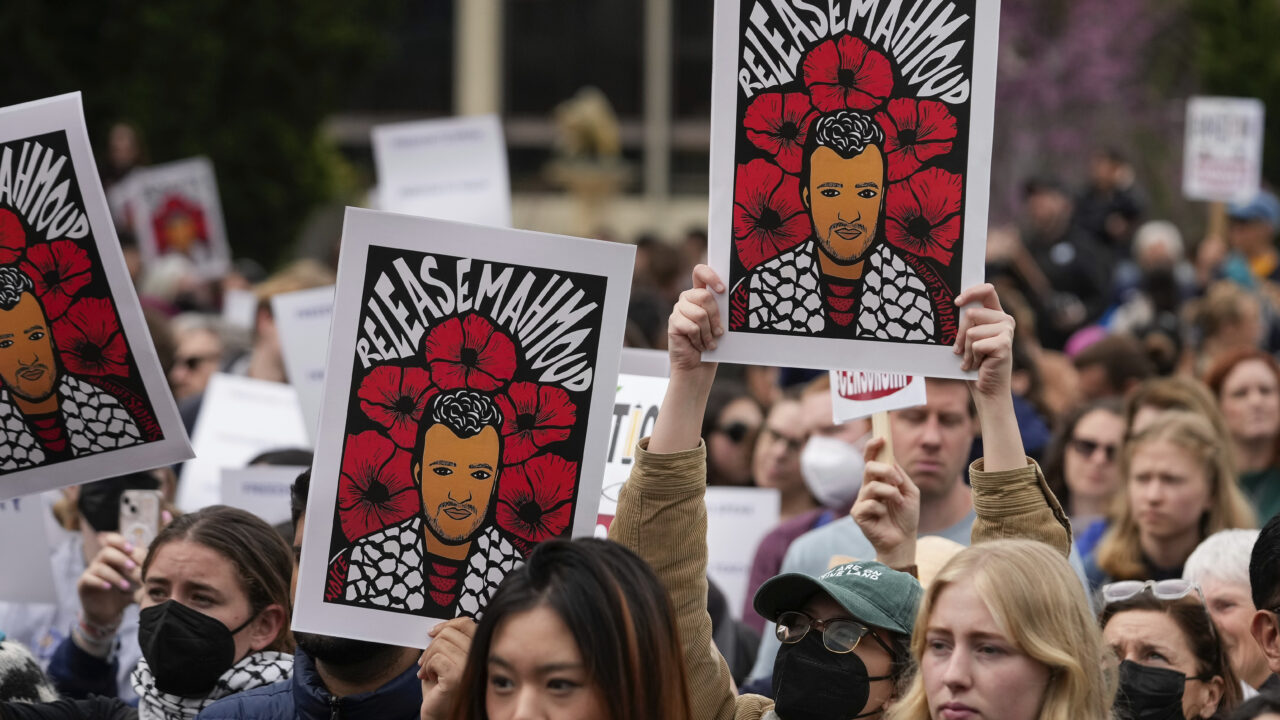 People hold signs in support of detained Palestinian activist Mahmoud Khalil while protesting the Trump administration at the University of California Berkeley campus on March 19, 2025. (AP Photo/Godofredo A. Vásquez)
People hold signs in support of detained Palestinian activist Mahmoud Khalil while protesting the Trump administration at the University of California Berkeley campus on March 19, 2025. (AP Photo/Godofredo A. Vásquez)
The Trump administration has reportedly revoked hundreds of student visas amid a widening crackdown on the U.S. Palestine movement.
In recent days, dozens of schools have announced that draconian measures by the Trump administration have targeted some of their students. The list includes the University of California at Berkeley, UCLA, Stanford, Ohio State, Minnesota State, Kentucky, Northeastern and Harvard.
Last month, Secretary of State Marco Rubio guessed that he had revoked about 300 visas since arriving in office.
“I don’t know actually if it’s primarily student visas,” Rubio told reporters. “It’s a combination of visas. They’re visitors to the country. If they’re taking activities that are counter to our foreign, to our national interest, to our foreign policy, we’ll revoke the visa.”
“My standard: If we knew this information about them before we gave them a visa, would we have allowed them in?” he continued. “And if the answer is no, then we revoke the visa.”
“They’re really, really afraid.”
“Campus officials are committed to doing what they can to support all members of our community as they exercise their rights under the law,” the University of California at Berkeley said in a statement. “In doing so, the university will continue to follow all applicable state and federal laws.”
“We are not aware of the details of the revocations or the reasons for them, but we understand that comparable numbers of students and scholars in institutions across the country have experienced similar status changes in roughly the same timeframe,” said the Harvard International Office.
“These are troubling times, and this situation is unlike any we have navigated before,” Minnesota State President Edward Inch told students and faculty in an email.
Ami Hutchinson, an attorney representing students at Arizona State University, says that at least 50 students have had their visas revoked at the school. She also estimated that roughly 1,000 student visas had been revoked, much higher than Rubio’s assertion.
Hutchinson says many students are confused about their sudden predicament.
“They still seem to think that someone made a mistake. That it shouldn’t have happened and this was just all a misunderstanding,” she explained. “They’re really, really afraid.”
Student protest crackdowns
Since the arrest and detention of Gaza activist and former Columbia University graduate Mahmoud Khalil on March 8, the Trump administration has revoked the student visas of multiple student protesters, but it’s unclear how directly this issue is connected to this current wave of revocations.
Multiple schools say they do not believe that their students were targeted over activism or protest.
Multiple schools say they do not believe that their students were targeted over activism or protest.
The Trump administration has also begun targeting students over other political developments, like the fact that South Sudan has not cooperated with the United States on accepting deported individuals back to their country.
However, alleged threats to U.S. foreign policy seem to be the predominant motivation behind the surge of student repression.
“We gave you a visa to come and study and get a degree, not become a social activist that tears up our university campuses,” explained Rubio. “And if we’ve given you a visa and you decide to do that, we’re going to take it away. We don’t want it in our country. Go back and do it in your country. But you’re not going to do it in our country.”
Last week, Tufts University became the first school to issue a public display of support for a detained student, filing a declaration in federal court seeking relief for Rumeysa Ozturk, who was detained by ICE for writing an op-ed encouraging her school to divest from Israel.
Ozturk is being held at an immigration facility in Louisiana.
The declaration, which was executed by Tufts President Sunil Kumar, points out that Ozturk is a hard-working student and that the school has no information that she was engaged in activities that would warrant an arrest.
Kumar also points out that the op-ed did not violate any of Tufts’ policies and was consistent with the school’s declaration on freedom of expression, which trustees adopted in 2009.
On social media, many criticized other universities for failing to stand up for students in the way that Tufts has.
“Mahmoud Khalil has been kidnapped for almost one month. While Tufts provided legal support for their kidnapped student, Columbia students had to chain to a fence in order to highlight that our own administration turned him over,” tweeted Columbia University senior Maryam Alwan. “Columbia STILL hasn’t said his name in an email.”
“Asserting support for your student being held as a political prisoner should be a low bar, and yet only Tufts has cleared it,” wrote journalist Natalie Shure.
“Is Tufts the first school to put its legal weight behind supporting a foreign student who was abducted and sent to ICE detention?,” asked media critic Sana Saeed. “Do you mean to say colleges can do more than simply send out statements of ‘Oh wow we didn’t know, damn that sucks. We can’t do much here tho’? Crazy.”
“Asserting support for your student being held as a political prisoner should be a low bar.”
In an appearance on “Democracy Now,” former Columbia law professor Katherine Franke, who was forced to resign from her position over her criticisms of Israel, said that the revocation of student visas and illegal detention of students represented a kind of ethnic cleansing.
“I can’t overstate how terrified our students are,” Franke said. “And it’s not just the students who are on visas or even green cards. It’s all of our students who come from other countries, who may even be citizens at this point, because it seems there’s no limit to the ways in which this administration is going to both test and violate the law in cleansing. It feels like a kind of racial and ethnic cleansing that is happening on our campuses.”
“One of the reasons I loved being a Columbia professor was that in many of my classes, half of the students came from other countries. … And when I talk to my colleagues now … I’m hearing that those students are not saying a word,” she continued. “Some of them are not even coming onto campus anymore, because they’re afraid of getting nabbed and of having the administration actually turn over their cellphones and home addresses. So, the classes are actually being emptied of those voices and of those bodies.”
Your support is crucial...As we navigate an uncertain 2025, with a new administration questioning press freedoms, the risks are clear: our ability to report freely is under threat.
Your tax-deductible donation enables us to dig deeper, delivering fearless investigative reporting and analysis that exposes the reality beneath the headlines — without compromise.
Now is the time to take action. Stand with our courageous journalists. Donate today to protect a free press, uphold democracy and uncover the stories that need to be told.

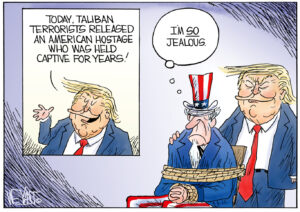
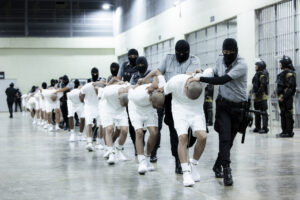
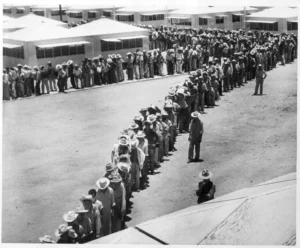
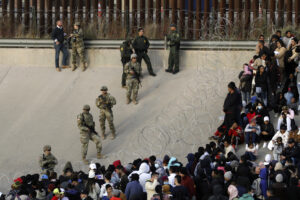


You need to be a supporter to comment.
There are currently no responses to this article.
Be the first to respond.